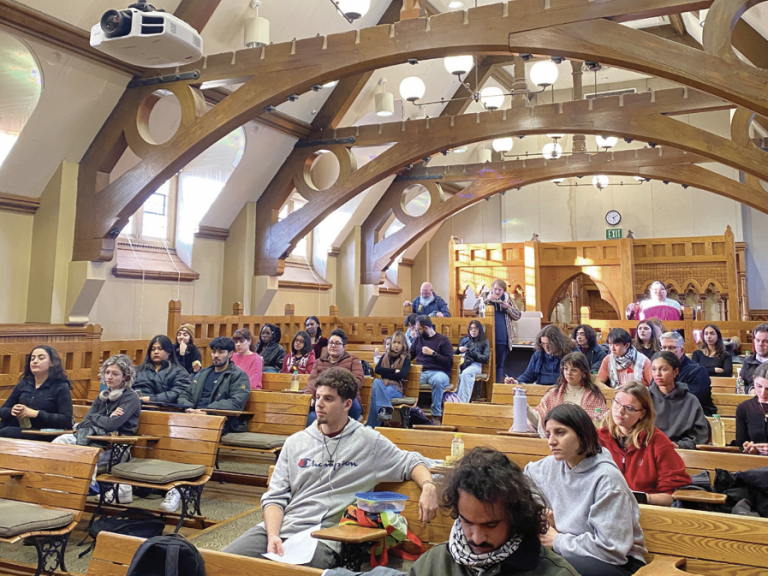Jack P. Carroll ’24
Staff Writer
On Sunday, Nov. 1st the Student Government Association (SGA) convened in an online meeting via Zoom to pass an updated version of the SGA Constitution, as well as to discuss the UMOJA Coalition’s recent meeting with the Diversity, Equity, and Inclusion Committee (DEI) of Trustees and student support for the Chartwells employee’s protests over contract negotiations.
Joshua Jacoves ’23, who is a member of the Constitutional Revisions Committee, introduced the final draft of the SGA Constitution which, in addition to some grammatical changes, includes a “Judicial Commission.” According to Jacoves, the Judicial Commission would serve as a “fact-checker” and to provide procedural guidance during all SGA meetings. The commission would also be responsible for reviewing violations of procedures and rules after they occur: After making a “binding decision”–which is agreed upon by a (3/5ths) majority of the members of the commision–regarding the interpretation of a procedure or rule that was violated in a meeting, it would then be presented to the SGA through the Executive Board.
The structure of the Judicial Commission would consist of a Parliamentarian, who would be chosen by the entire SGA, as well as four general SGA members: Two of which would be elected by the Executive Board and the other two by the Senate. Jacoves noted that the division of the four general positions would serve to prevent the rise of a “conflict of interest” between either the Executive Board and the Senate over the decisions made by the commission. Each member of the committee would possess one vote when deciding upon a binding decision and would serve a term length of one full academic year.
SGA had previously indicated that it would eliminate the Parliamentarian position, and it was not immediately clear what had accounted for the shift in thinking. Students had also previously expressed concerns about the decision to eliminate the Parliamentarian.
The SGA unanimously passed the revised Constitution and it is to be sent out to the remainder of the student body this week for ratification.
Jederick Estrella ’22, who represented the UMOJA Coalition, discussed the organization’s recent meeting with the newly-formed Diversity, Equity, and Inclusion Committee (DEI) of Trustees. In the meeting, Estrella, along with others, presented ideas for helping black students and students of low income acclimate to college life at Trinity. After conducting a comparative analysis to Cornell University’s career development office–which was presented to the Trustees–Estrella suggested that the college should employ more people of color in a number of departments and administrative positions.
Furthermore, Estrella proposed the idea of introducing Persistence Advisors to help students of color and those of low income adjust to college. These advisors would help these students with a broad range of tasks relating to academics, financial support, personal well-being, professional development, social life, and civic engagement. In his presentation, Estrella noted that this type of assistance is already offered to students in states like New York through its Higher Education Opportunity Program (HEOP). Also, funding for a Black NESCAC Conference, the conversion of an unused house on Broad Street (owned by Trinity) into an art gallery, and the Office of Multicultural Affairs, was discussed in UMOJA’s meeting with the Trustees.
In regards to the Chartwells employees’ protests that took place this past week during lunch hour, SGA President Giovanni Jones ’21 noted that several members of the SGA have been in contact with people from Chartwells to determine how students can best support them in their contract negotiations. Co-Vice President of Communications Maddy White’ 22 emphasized that the SGA is to solely operate and provide support in a manner that the employees best see fit.





